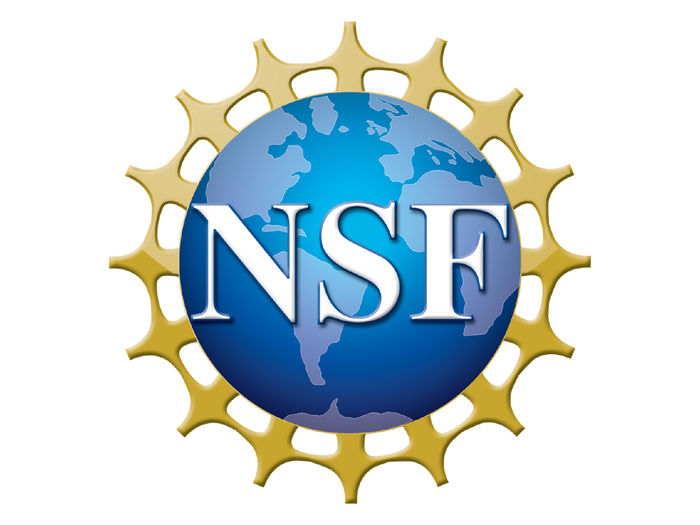
Penn State Berks recently received a $750,000 grant from the National Science Foundation Scholarships in Science, Technology, Engineering and Mathematics (S-STEM) program. The grant will be used to create the Penn State Berks Leveraging Innovation and Optimizing Nurturing (LION) STEM Scholars Program, which will provide support in the form of a four-year renewable $6,250 scholarship to talented engineering students with demonstrated financial need. Students who meet the requirements will receive $25,000 over four years.
In addition to scholarship funds, students will also receive academic support, mentoring, and professional development through the LION STEM Scholars Program. Six students will be enrolled in the program each year for three years, for a total of 18 scholars over the program period. The application deadline is April 1, for the first cohort of LION STEM Scholars and the application can be found on the LION STEM Scholars website at sites.psu.edu/berkslionstemprogram.
The LION STEM Scholars Program also provides other experiences shown to support college success including a free four-week summer “bridge” program to enhance academic preparedness and to provide community-building experiences prior to the first fall semester of college, a cohort experience, special on-campus living options, and enrichment activities focused on communication, financial literacy, career readiness, undergraduate research, and community engagement.
The main goal of the LION STEM Scholars Program is to enhance the STEM workforce by graduating more diverse high-achieving STEM students who have demonstrated financial need. Penn State Berks will collect data to analyze how curricular and co-curricular activities influence STEM identity and disseminate findings in the areas of STEM persistence and role identity.
Ryan Hassler, associate teaching professor of mathematics at Penn State Berks, is the principal investigator on the grant, along with co-principal investigators Dawn Pfeifer Reitz, assistant teaching professor of communication arts and sciences, and Janelle Larson, division head of engineering, business and computing at Penn State Berks. Other senior personnel on the grant include Sonia Delaquito, coordinator of the Learning Center at Penn State Berks, and Catherine Cohan, assistant research professor in the Center for Engineering Outreach and Inclusion at Penn State University Park, who will provide program evaluation support.
“I am excited to begin the LION STEM Scholars program, which takes a holistic approach to analyzing STEM persistence as a byproduct of one’s development of their STEM identity,” explains Hassler. “Through targeted interventions, this program will provide students with academic and co-curricular support across their four-year engineering degrees at Penn State. The financial support provided by the National Science Foundation will be nothing short of a life changer for those who might otherwise not be able to afford higher education.”
Hassler is the coordinator of the Penn State Berks Engineering Ahead program, a four-week summer “bridge” program held prior to the freshman year to increase retention rates among a diverse group of engineering students by enhancing academic preparedness and enabling students to build social bonds. He explains that 30% of the students enrolled in the Engineering Ahead program are eligible for federal Pell grants. Hassler was interested in applying for the NSF S-STEM grant because many economically disadvantaged students are not able to complete their degrees due to financial limitations. The LION STEM Scholars Program will provide some of the funds these students need to complete their degrees.
“The LION STEM Scholars Program is an exciting new program that builds on the success of the Engineering Ahead project, also funded by the National Science Foundation. The short-term goal is to increase the success of talented Berks students who want to major in engineering and who have documented financial need. The long-term goal is to improve students’ social mobility and overall diversity in the engineering workforce,” added Cohan.
“I am thrilled that Dr. Hassler has prioritized important skills like oral and written communication, professionalism and organization and mentoring as part of the curriculum for the LION STEM Scholars Program. I am honored to be a member of this team and look forward to guiding the LION STEM Scholars on a journey that helps them acquire these power skills –professional competencies for real-world and career success,” stated Dawn Pfeifer Reitz.
“Student persistence in college, especially for those who are considering challenging majors, has been problematic if they are underprepared. Students often ‘don’t know what they don’t know.’ The LION STEM Scholars program provides these students with holistic support from their entrance at Penn State through those critical stages and semesters where many get lost along the way. I am so grateful to be a part of this dynamic program,” added Sonia Delaquito.
For more information on the LION STEM Scholars Program, contact Hassler at 610-396-61297 or via email at rsh14@psu.edu or visit the LION STEM Scholars website at sites.psu.edu/berkslionstemprogram.






